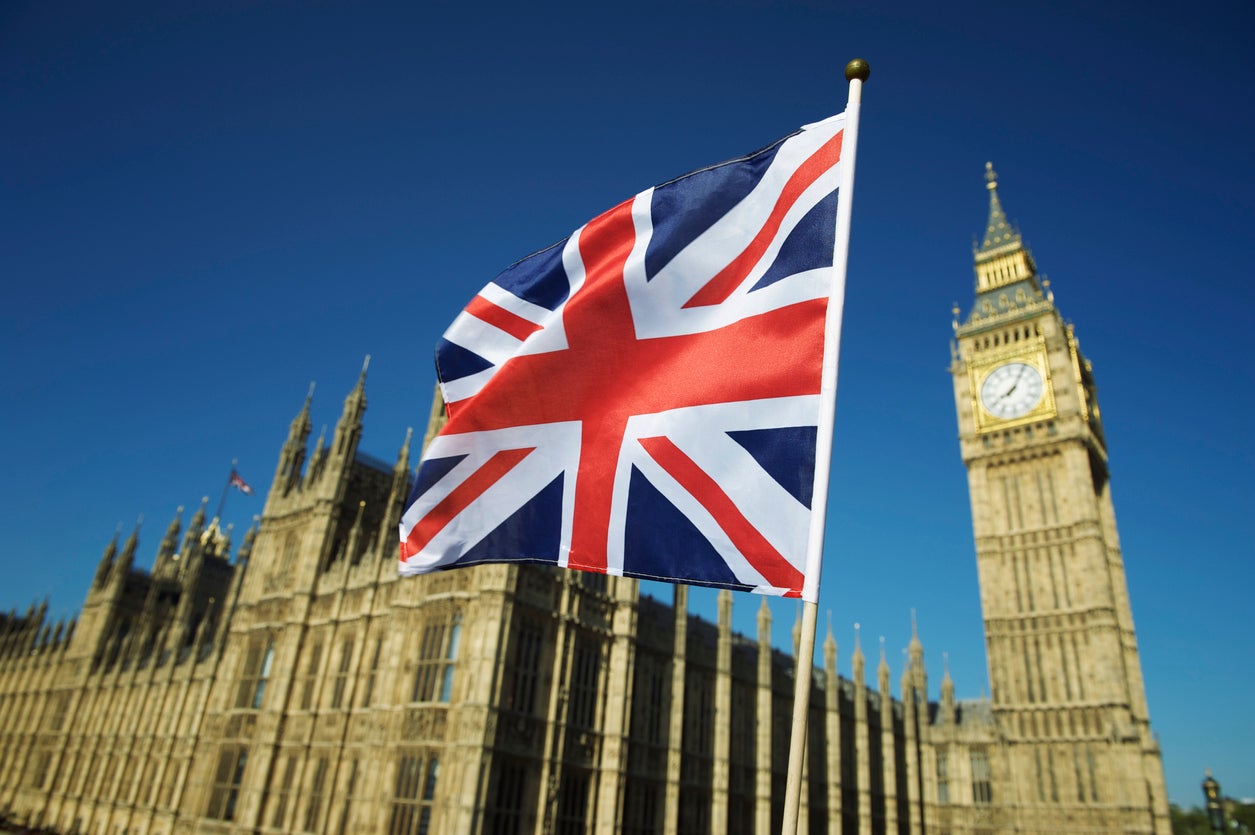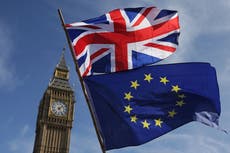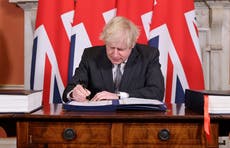I’m a Brexiteer, the deal delivers what we wanted and our neighbours on the continent agree
The treaty is imperfect but stands Britain in good stead for the future

After four and a half years, three prime ministers, and nine months of trade talks, Brexit has finally taken full effect.
Brexiteers from Sir Bill Cash to Suella Braverman are endorsing the new deal, signed just in time for the end of year sparkling wine and champagne celebrations.
After studying the UK-EU Trade and Cooperation Agreement text over Christmas dinner, their verdict is clear. The UK has become sovereign once more.
The UK has an independent trading policy and legal order. It is released from the European Court of Justice – it has no direct effect, application, and no role for the Court. UK industry is under domestic regulation. It is an autonomous coastal state with control of its own fishing waters. This is the first ever zero-tariff, zero-quota trade agreement the EU has reached. The UK has unprecedented provisions, is on a level-playing field and is rebalancing protections.
Last weekend we used our new found legal freedom to diverge from EU retained law and regimes. No longer bound by the EU’s VAT Directive, the UK has abolished the “tampon tax”.
The government’s gambit of choosing autonomy over alignment has paid off. Think tank Open Europe – which was neutral during the 2016 referendum – said the deal vindicates government Europe adviser Lord Frost’s strategy.
We have independence from the EU’s regulatory system, and a high degree of market access. This is the squared circle many thought impossible for a non-member state. The full caffeine Brexit Vote Leave promised – uniting sovereignty and valuable trade terms.
But don’t take our word for it. Listen to the reactions from other non-member states as the ink dried on the 1,246-page treaty.
Norway’s Centre Party says the deal gives the UK more freedom. That it allows access to the internal market and common trade, without signing up to dynamic alignment.
The Norwegian socialists go further, saying we’re “no longer subject to EU supremacy”. They add that the UK’s deal takes back authority; safeguarding sovereignty “in a better way than the EEA does for us”.
The Swiss People’s Party took to Twitter to praise the British PM. “Boris Johnson got it right. Negotiated hard, no submissiveness, deal reached – without foreign lawmakers and foreign judges.” The liberals in Switzerland demand the deal be used as a negotiating benchmark with the EU.
The agreement also has forged unlikely common ground in Britain. Hilary Benn’s Future Relationship Select Committee concludes it recognises both sides’ equal sovereignty and common interests.
This is also the first, and likely last, time the leaders of the two main parties, and Nigel Farage, took the same position.
To be clear, the deal is imperfect and falls short in several vital areas.
On services, the deal does not go far beyond the limited scope of what the EU agreed with Canada and Japan. Long-term cooperation agreements here, and on data adequacy are pivotal.
Financial services, the jewel in the UK’s crown, is conspicuously absent. This means the sector’s access is subject to unilateral, unpredictable equivalence ratings, which can be withdrawn by the EU at a month’s notice. It also means the sector is currently exempt from any cross-retaliation in the economic chapters.
More is also needed on judicial cooperation and legal services. Lawyers registered in England and Wales now face 27 different regulatory regimes – each with its own rights, obligations and restrictions.
The deal creates a framework for professional qualifications to be mutually recognised in future, but not at present.
A consequence of withdrawal is Northern Ireland still being subject to some EU single market laws. This also means new borders and friction in NI-GB internal trade.
Every Conservative prime minister from Edward Heath to Theresa May was initially praised for deal making dexterity in Brussels. The tenets of British Euroscepticism were sown in Margaret Thatcher’s Bruges speech. But no other premiership presided over greater European integration. John Major’s “game, set and match” opt-outs from the Maastricht Treaty won him plaudits. But these did nothing to spare him after the European Exchange Rate Mechanism debacle on Black Wednesday. In 2011, David Cameron’s much-vaunted veto against the EU’s plans to revise treaties turned out to be a phantom one. The other 26 promptly bypassed Britain; forging a new eurozone “fiscal compact” among themselves.
The real test of the deal will come in enforcing it. The UK can now chart its own course, to represent its own interests more effectively outside the European bloc.
This agreement is far from complete. But it puts Britain’s future, and our sovereignty, in good hands again – the hands of the people.
Stephen Lynch is a former adviser on Brexit to the Law Society of England and Wales, and a former press adviser to the Conservative Party. He writes in a personal capacity





Join our commenting forum
Join thought-provoking conversations, follow other Independent readers and see their replies